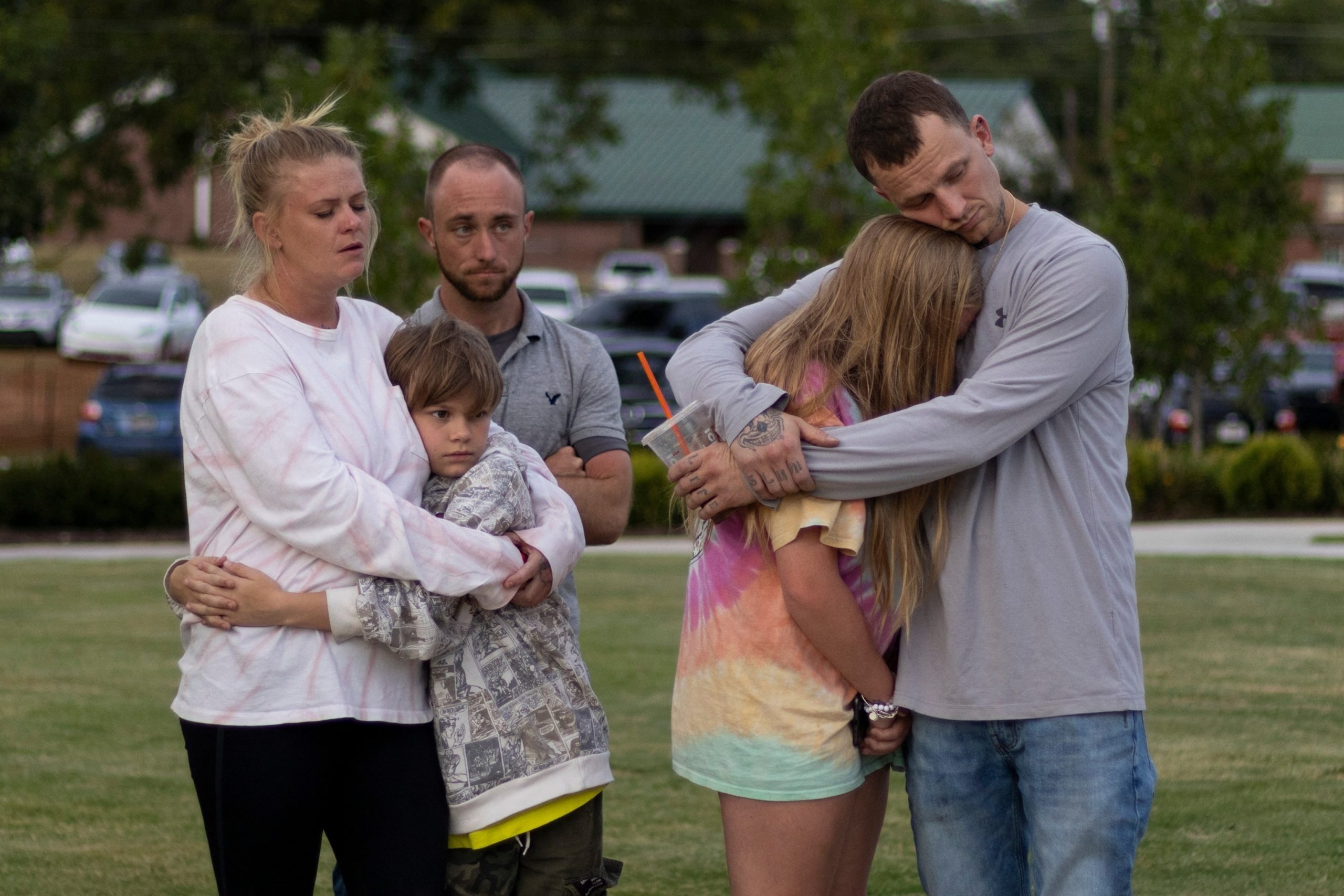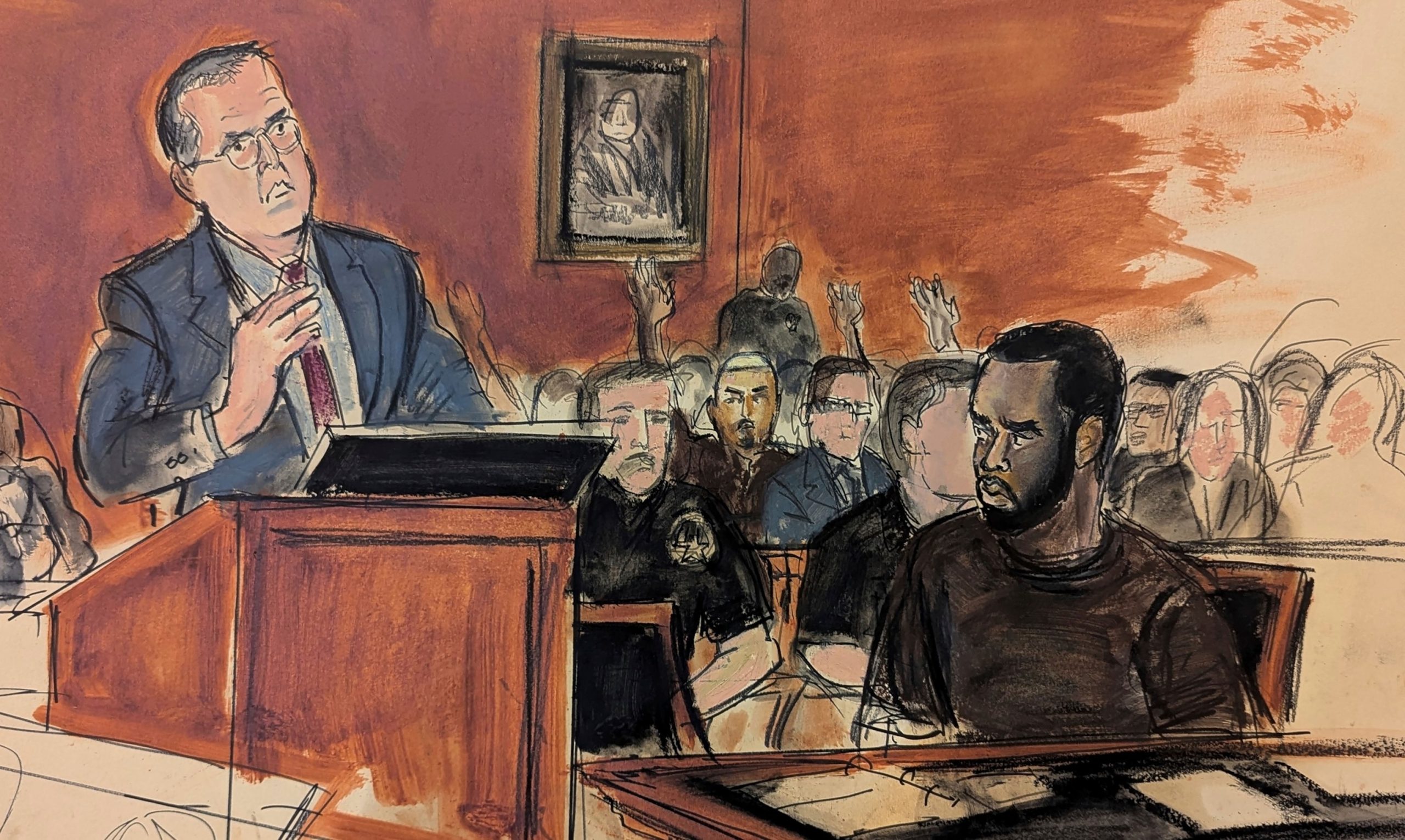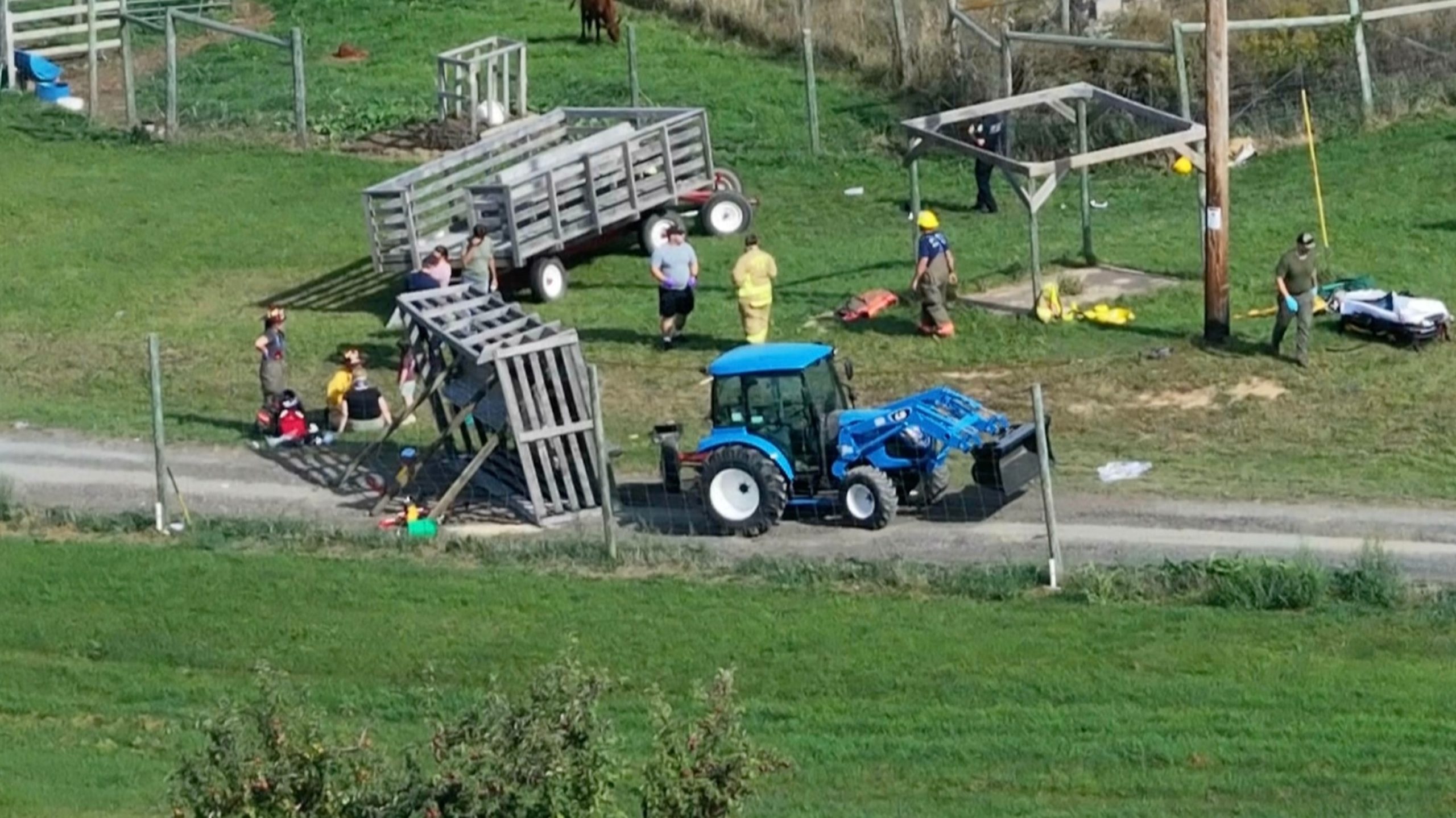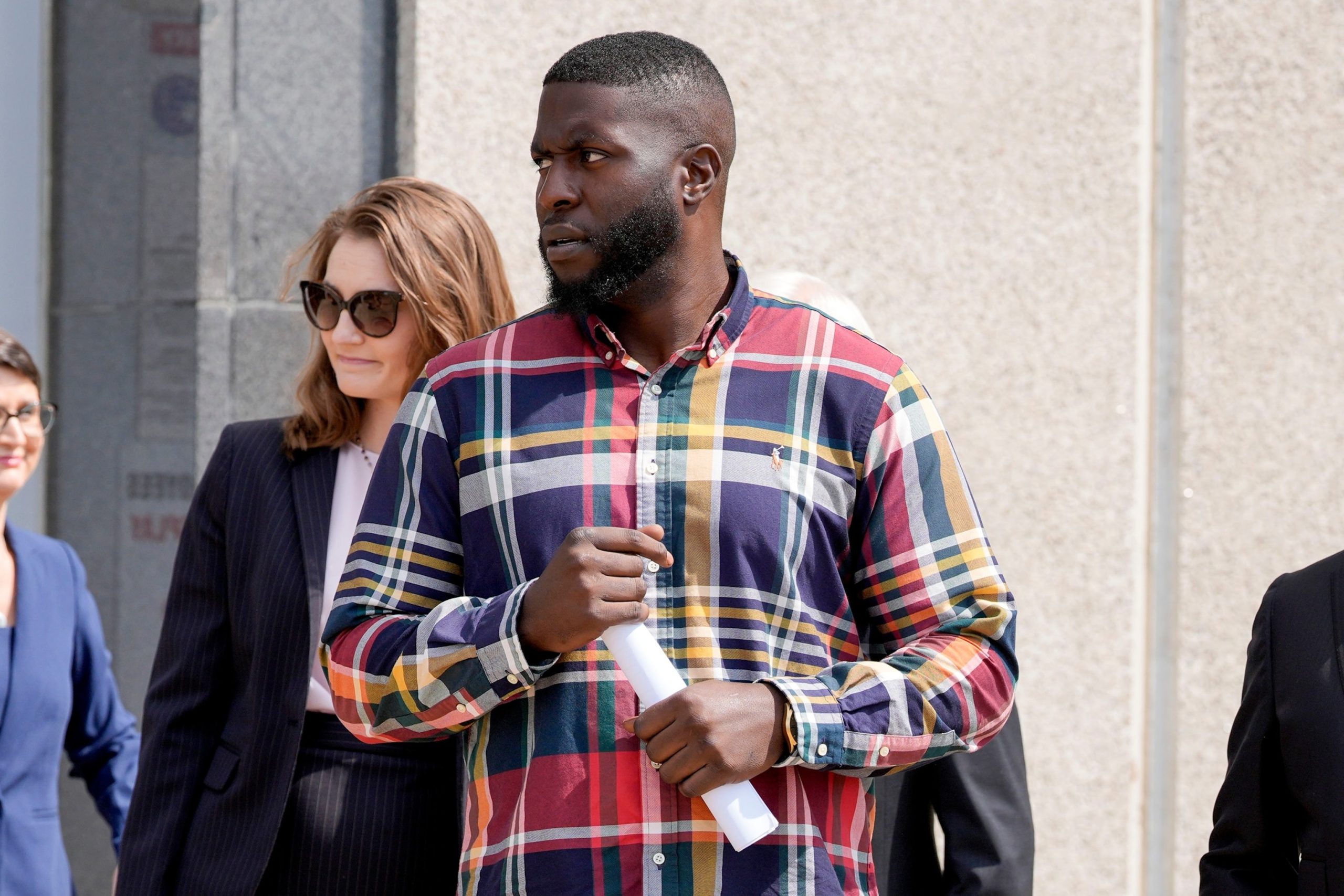The shooting at Apalachee High School — which left two students and two teachers dead Wednesday — has brought renewed attention to Georgia’s lax gun laws.
The advocacy group Everytown for Gun Safety ranks Georgia 46th nationally for what they call some of the “weakest gun laws in the country.”
Permits and background checks are not required in order to purchase firearms in Georgia, including assault weapons.
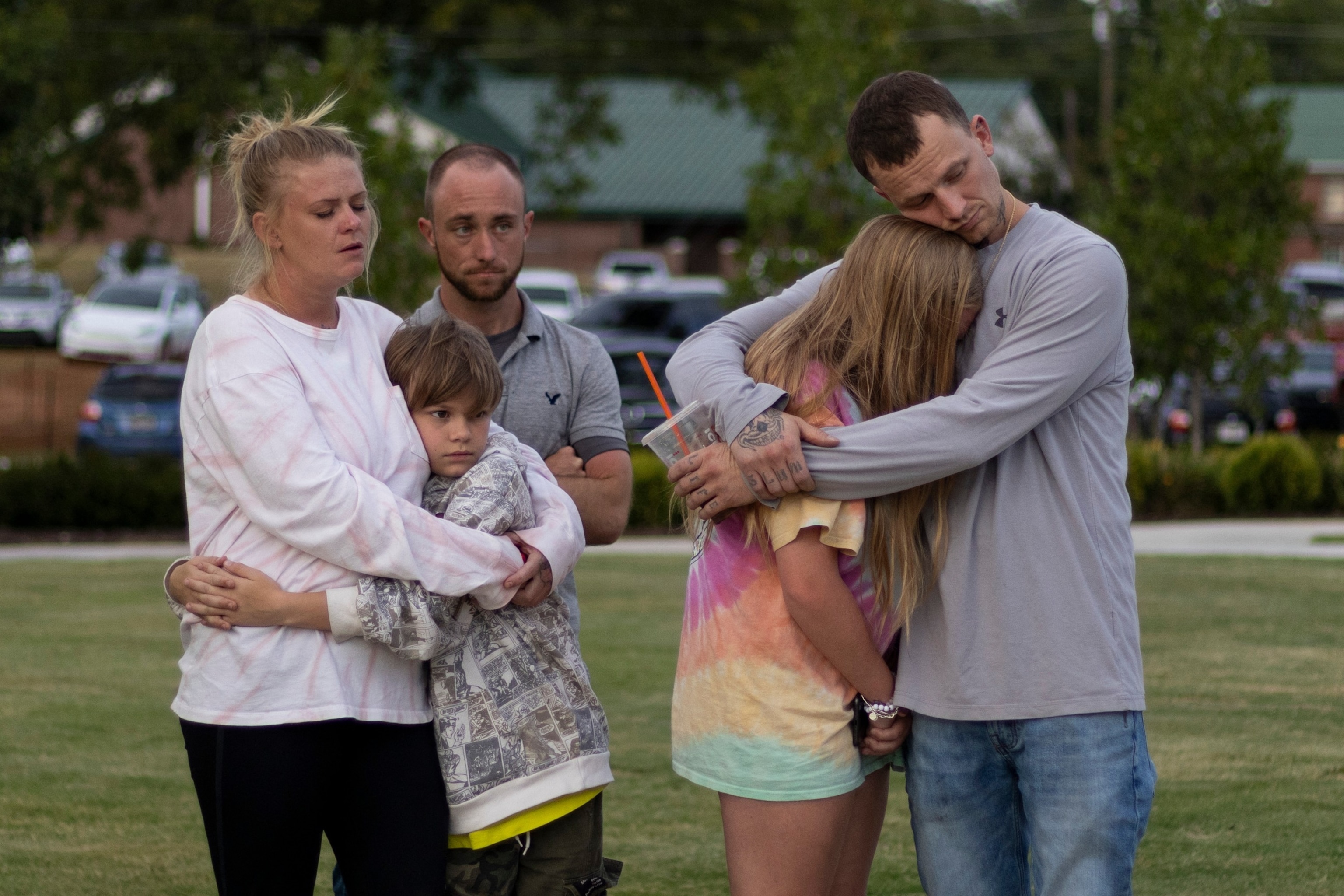
A family embraces during a vigil for the victims of the Apalachee High School shooting at Jug Tavern Park in Winder, Georgia, on September 4, 2024.
Christian Monterrosa/AFP via Getty Images
Gun owners in Georgia are also not legally required to lock up or otherwise securely store firearms away from children.
Georgia Gov. Brian Kemp has a significant track record of supporting pro-gun legislation. In 2022, he signed a bill into a law that made it legal for gun owners in the state to carry a concealed weapon in public without first obtaining a license.
In April 2021, in response to anti-gun violence nonprofit Giffords Law Center giving Georgia an “F” for its gun laws, Kemp said he was proud of the failing grade.
“I’ll wear this ‘F’ as a badge of honor,” Kemp wrote in a post on X. “Our 2nd Amendment is sacred, and I’ll never back down from defending Georgians’ constitutional rights.”
In the wake of Wednesday’s shooting, Kemp said he was “heartbroken” by the incident.
“This is a day every parent dreads, and Georgians everywhere will hug their children tighter this evening because of this painful event,” he said in a statement. “We continue to work closely with local, state, and federal partners to make any and all resources available to help this community on this incredibly difficult day and in the days to come.”
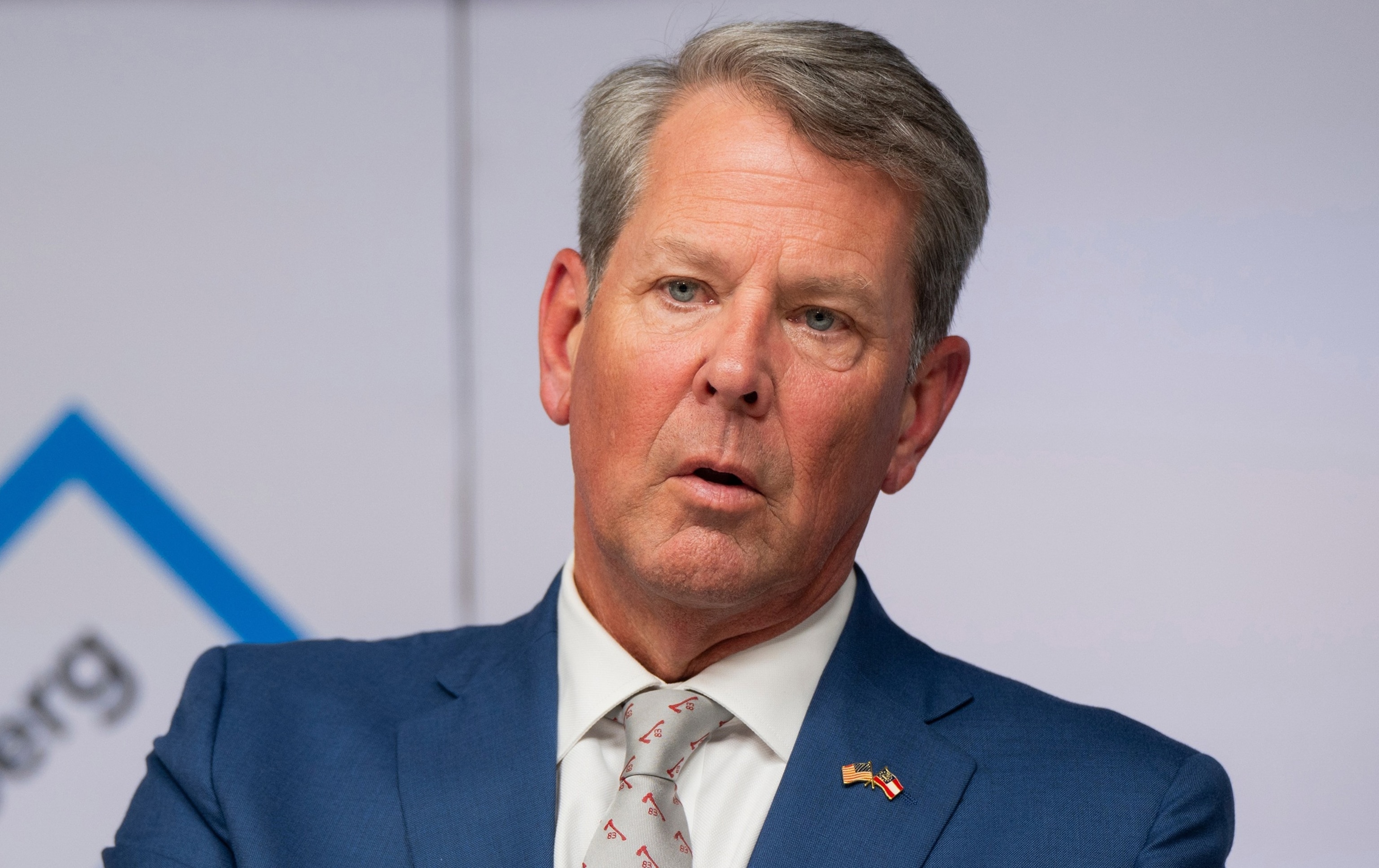
Brian Kemp, governor of Georgia, during an interview at the Republican National Convention, in Milwaukee, July 15, 2024.
Vincent Alban/Bloomberg via Getty Images
Like in every U.S. state, federal law requires a person in Georgia must be at least 18 years old to purchase a firearm, and to not have ever been convicted of a felony.
The suspect in the Apalachee High School shooting on Wednesday is 14, and therefore could not legally own or purchase a gun.
His father told law enforcement officials he had hunting rifles at home, according to the police report obtained by ABC News, and said his son was “allowed to use them when supervised” but did not “have unfettered access to them.”
President Joe Biden put out a statement Wednesday calling for stricter federal gun regulations.
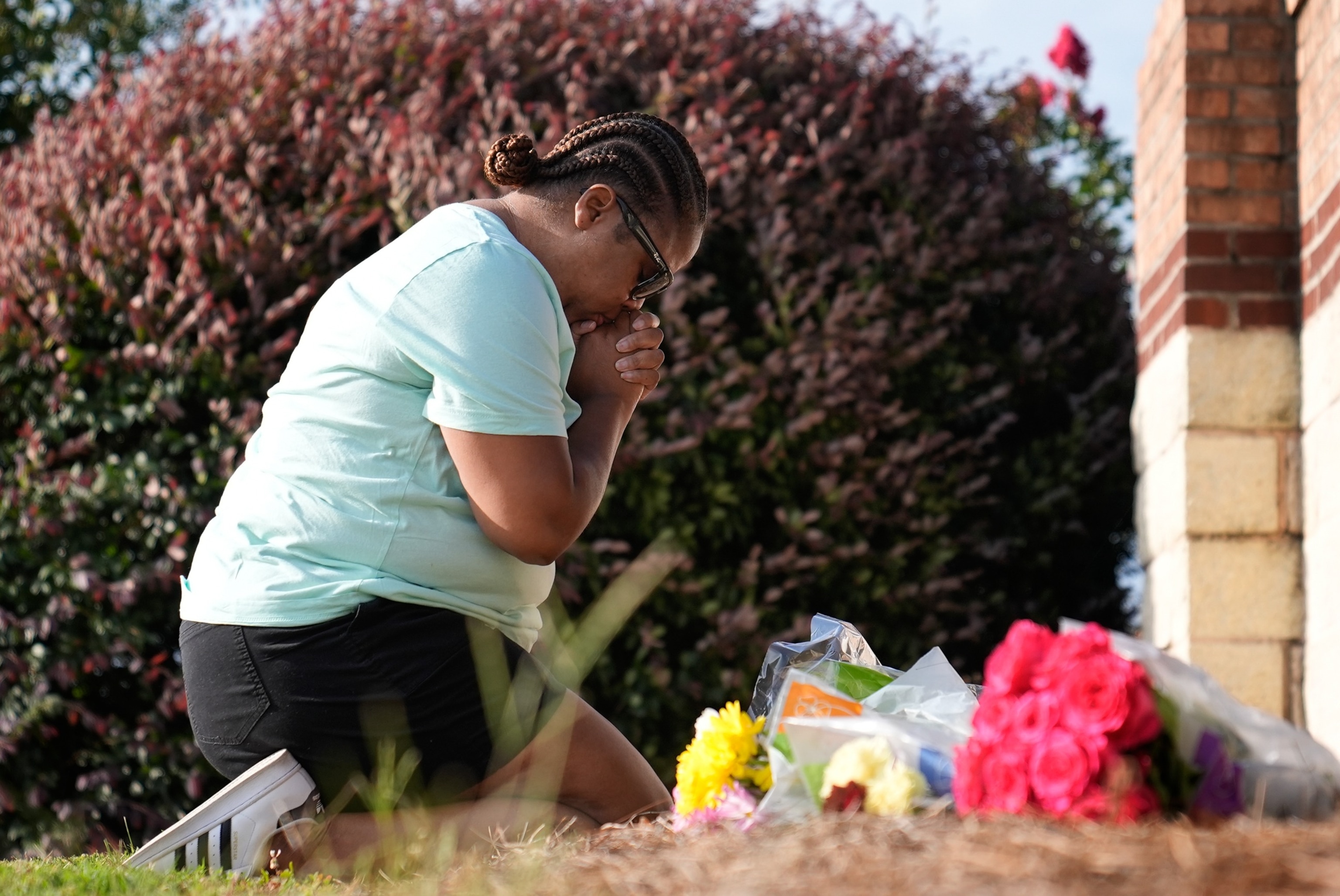
Linda Carter, of Grayson, Ga., kneels near Apalachee High School to place flowers as she mourners for the slain students and teachers, Sept. 5, 2024, in Winder, Ga.
Brynn Anderson/AP
“After decades of inaction, Republicans in Congress must finally say ‘enough is enough’ and work with Democrats to pass common-sense gun safety legislation,” Biden said. “We must ban assault weapons and high-capacity magazines once again, require safe storage of firearms, enact universal background checks, and end immunity for gun manufacturers.”
“These measures will not bring those who were tragically killed today back, but it will help prevent more tragic gun violence from ripping more families apart,” Biden added.
Wednesday’s shooting marked the 218th shooting at a K-12 school this year, according to Nick Wilson, senior director of gun violence prevention at the Center for American Progress.
At least 11,606 people have died from gun violence in the U.S. this year as of Sept. 5, which does not include suicides, an average of nearly 47 deaths per day, according to the Gun Violence Archive.
In the wake of the tragic shooting at Apalachee High School in Georgia, many people are left wondering about the state’s gun laws and how they may have played a role in this devastating event. Understanding gun laws in Georgia is crucial for both residents and lawmakers in order to prevent future tragedies and ensure the safety of all individuals.
Georgia has relatively lenient gun laws compared to other states in the U.S. The state allows for both open carry and concealed carry of firearms for individuals who have obtained a permit. In order to obtain a concealed carry permit, individuals must be at least 21 years old, pass a background check, and complete a firearms training course. However, there are no requirements for background checks or permits for purchasing firearms in Georgia, which has raised concerns about the ease of access to guns in the state.
In terms of gun control measures, Georgia does have some restrictions in place. For example, it is illegal to possess a firearm on school grounds, including colleges and universities. Additionally, individuals who have been convicted of certain crimes, such as domestic violence offenses, are prohibited from owning firearms. However, there are no restrictions on the types of firearms that can be purchased in Georgia, including assault weapons.
Following the shooting at Apalachee High School, there has been renewed debate about gun control measures in Georgia. Some lawmakers and activists are calling for stricter regulations on firearms, such as universal background checks and bans on assault weapons. Others argue that these measures would infringe on individuals’ Second Amendment rights and that the focus should be on addressing mental health issues and improving school security.
It is important for residents of Georgia to educate themselves on the state’s gun laws and to advocate for measures that will help prevent gun violence. This includes supporting initiatives to improve mental health services, increase funding for school security measures, and implement common-sense gun control measures that will keep firearms out of the hands of individuals who pose a threat to public safety.
In conclusion, understanding gun laws in Georgia is essential for promoting public safety and preventing tragedies like the shooting at Apalachee High School. By staying informed and actively participating in the debate on gun control, residents can work towards creating a safer and more secure environment for all individuals in the state.
